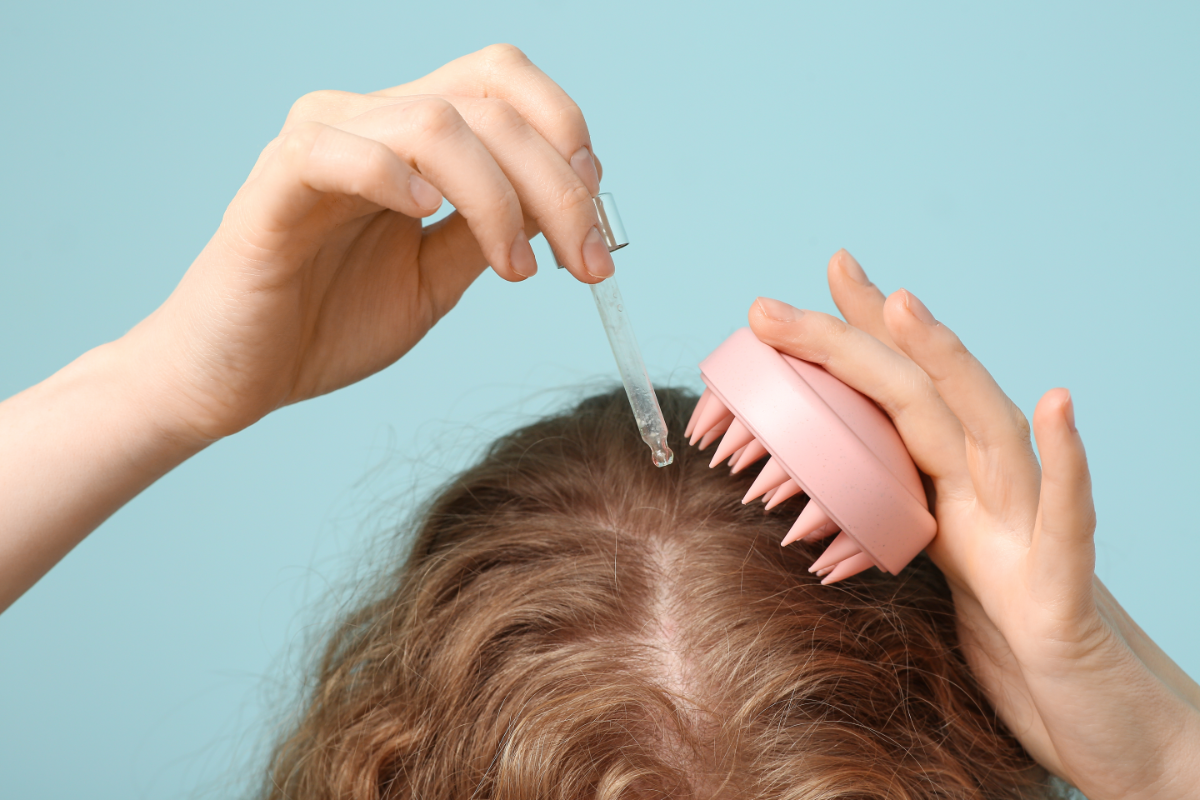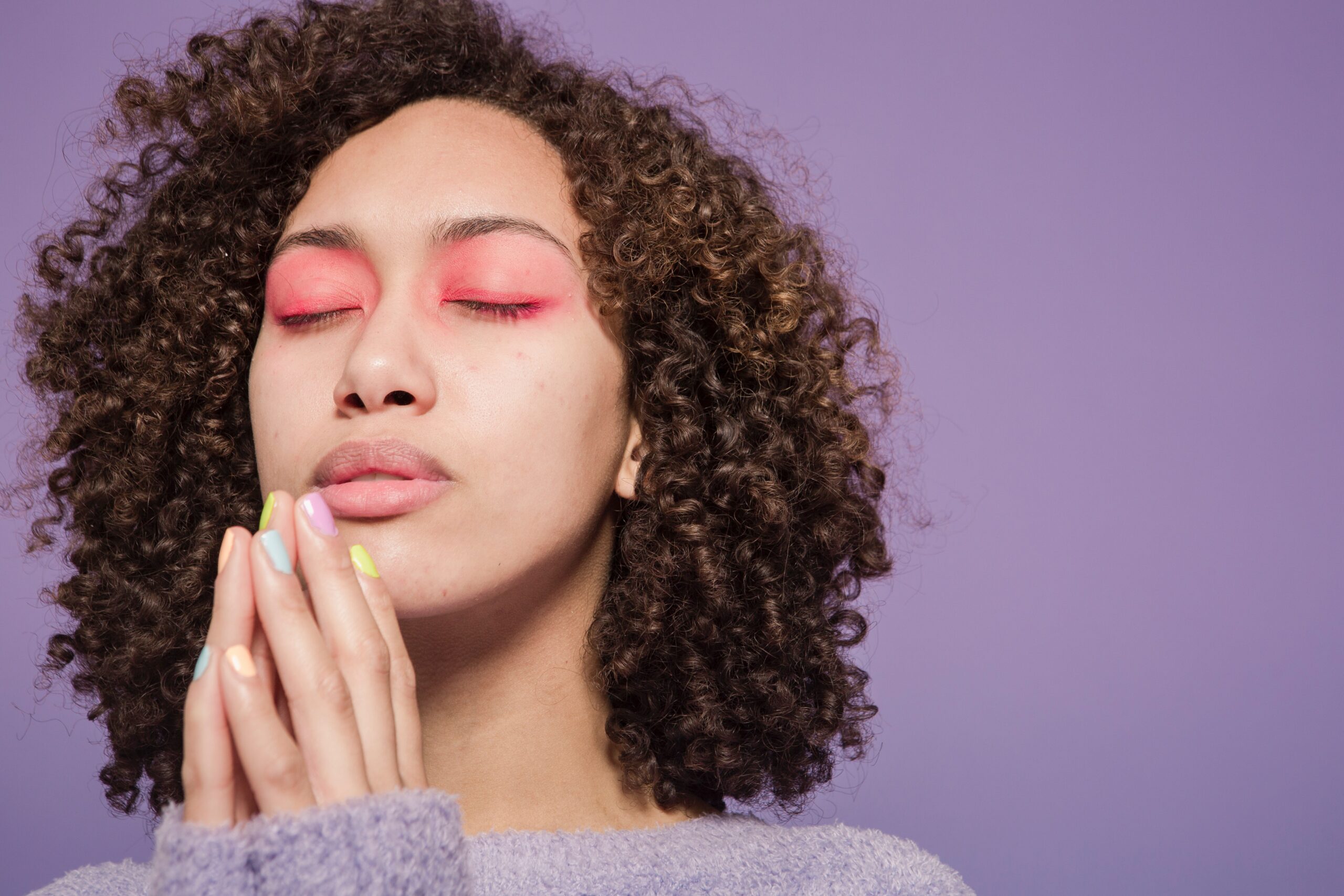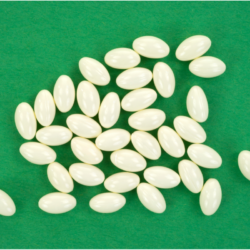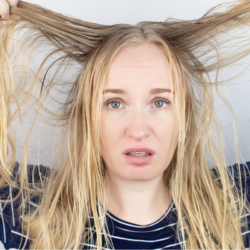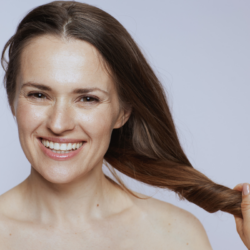Dry, itchy scalp is a common but uncomfortable problem. Many people struggle with this condition, which can be both annoying and disruptive to their daily lives. In this article, we’ll look at the causes and solutions to soothe and effectively treat this problem.
Dry scalp can result from a variety of factors, including environmental changes, the use of unsuitable hair products and nutritional deficiencies. These factors contribute to an imbalance in the scalp’s natural moisture balance, leading to a feeling of discomfort characterised by persistent itching.
It’s essential to understand that the scalp, like any other part of the skin, needs attention and care. A healthy scalp is the basis for strong, radiant hair. Treating the problem at source not only relieves itching and discomfort, but also helps to improve the overall appearance of the hair.
In the following sections, we’ll explore in detail the methods and treatments available to rehydrate the scalp, relieve itching and promote healthy hair. We’ll look at natural remedies, beneficial lifestyle changes and advice on choosing the right hair products. The aim is to provide you with a complete range of practical and effective solutions to deal with dry scalp and regain comfort and well-being.
Understanding dry scalp
Definition of dry scalp
Dry scal p is characterised by a lack of moisture and sebum, which are essential for maintaining the balance and health of the skin on the head. This condition can lead to feelings of tightness and itching, and often to the appearance of dandruff. Contrary to popular belief, dry scalp is not necessarily linked to a specific hair type; it can affect both oily and dry hair.
why do I have a dry scalp?
The causes of dry scalp are varied, but some are more common and deserve special attention.
- Environmental factors: climatic conditions such as dry air, cold or prolonged exposure to the sun can dry out the scalp. Similarly, air conditioning and central heating, by reducing the humidity in the air, contribute to this dryness.
- Unsuitable hair products: Frequent use of shampoos or styling products containing sulphates, strong alcohols or other aggressive ingredients can upset the scalp’s natural balance. These ingredients can strip the scalp of its natural protective oils, leading to increased dryness.
- Dietary imbalances and hydration: A diet low in essential nutrients, particularly vitamins and fatty acids, can affect the health of your scalp. Similarly, insufficient hydration has a direct impact on the health of the skin in general, including the scalp. So it’s crucial to ensure you eat a balanced diet and drink enough water.
- Sunburn: Like sunburn on other parts of the body, scalp skin can become dry and flaky after sunburn.
- Allergies: A reaction to new hair products can lead to skin irritation and dryness.
- Ageing: As we age, less sebum is produced, making dry scalp more likely.
What products should I choose if I have a dry scalp?
The choice of hair products is a crucial element in the management and treatment of dry scalp. It’s important to choose products that are specifically formulated to be gentle and moisturising.
- Gentle shampoos: Opt for gentle shampoos that cleanse the scalp without stripping it of its natural oils. Look for products containing gentle cleansing agents and avoid those containing aggressive substances. Moisturising shampoos or shampoos for sensitive scalps are often a good choice. Ingredients such as aloe vera, glycerine and silk proteins can help keep the scalp moisturised.
- Nourishing conditioners: Using a nourishing conditioner is essential to restore moisture to the scalp and hair. Conditioners rich in moisturising agents such as shea butter, argan oil or avocado oil help to nourish the scalp and reduce dryness. They also help detangle hair, making it softer and easier to style.
- Sulphate- and alcohol-free products: Sulphates and certain types of alcohol found in hair products can dry out the scalp. It’s therefore advisable to choose shampoos and conditioners that are sulphate-free and free from harsh alcohols. These products are gentler and less drying, which is beneficial for people with dry, sensitive scalps.
How can I relieve itching on a dry scalp?
If you suffer from dry scal p, the first step may be to change shampoos and wash your hair less frequently. The aim is to allow your hair’s natural moisture levels to improve. Before going to bed, apply a gentle moisturiser to your scalp. You can use something as simple as vitamin E oil or coconut oil. Then put on a shower cap to keep the moisturiser in place while you sleep. In the morning, wash your hair with a mild shampoo followed by a highly moisturising conditioner. For extreme dryness, you might consider skipping the shampoo step and going straight for the conditioner. In general, people with dry scalps should only wash their hair a few times a week. Repeat this process daily for about a week. If your scalp is still very dry or flaky, you should consider consulting a dermatologist to work out a more advanced treatment plan.
This process not only moisturises the scalp, but also restores the natural balance of oils and prevents dryness from worsening. It’s important to note that the choice of products is crucial: opt for gentle formulations, free from sulphates and strong alcohols, which can aggravate dryness. By following these simple steps, you can make a major contribution to improving the health of your dry scalp and regaining comfort and well-being.
How can I look after my scalp?
Adopting the right washing and care techniques is essential for maintaining a healthy dry scal p. Washing frequency and drying methods play a key role in this process.
- Washing frequency: For a dry scalp, it is advisable to reduce the frequency with which you wash your hair. Washing your hair every day can strip it of its natural oils and make dryness worse. Ideally, you should wash your hair two or three times a week, as this helps to preserve the scalp’s natural moisture levels while removing accumulated impurities. If necessary, you can use dry shampoos between washes to refresh your hair without drying it out.
- Drying methods: The way you dry your hair can also affect the condition of your scalp. Avoid using high temperatures when drying, as excessive heat can further dry out the scalp. Instead, air-dry or use a hairdryer at a moderate temperature, keeping it away from your scalp. Also, avoid rubbing your hair vigorously with a towel. Instead, pat gently to absorb excess water without irritating the scalp.
Tips to prevent itchy scalp
To keep your scalp healthy and prevent itching, there are a number of preventive steps you can take. Here are a few practical tips:
- Cover the scalp in a dry environment: In dry climatic conditions, such as during the winter or in desert areas, it is advisable to protect your scalp. Using hats or scarves can help maintain the scalp’s natural moisture and protect it from elements that could dry it out further. Choose breathable, natural materials to avoid overheating and excessive perspiration.
- Avoid tight hairstyles: Hairstyles such as tight ponytails, braids or buns can put excessive pressure on the scalp, leading to irritation and itching. Choose looser hairstyles that allow your scalp to breathe and reduce the risk of tension and tightness.
- Reduce the use of chemicals: Limit the use of hair products containing harsh ingredients such as dyes, bleaches and hairsprays. These products can irritate the scalp and exacerbate dryness and itching. If you must use such products, make sure you follow a moisturising care protocol to compensate for their drying effect.
By following these tips, you can help prevent itching and maintain a healthy, comfortable scalp. Remember, prevention is often the best approach to caring for your scalp.
Oil baths for a dry scalp
For those looking for natural alternatives to treat dry scal p, using oils such as castor oil and coconut oil offers significant moisturising and nourishing benefits.
- Castor oil is prized for its moisturising properties and its ability to promote hair growth. It is particularly rich in fatty acids, making it ideal for deeply moisturising dry scalps. It also has beneficial effects against inflammation and dandruff. To apply, gently massage castor oil (mixed with another jojoba-type oil, as castor oil is very thick) into the scalp and leave on for several hours (3-4 hours max), before washing the hair.
- Coconut oil, with its medium-chain fatty acids, is another valuable ally in the treatment of dry scalp. It penetrates easily into the skin and hair, restoring natural moisture and preserving hair keratin. For best results, warm the coconut oil slightly to make it easier to apply and absorb, then massage it into the scalp. Prolonged exposure can maximise the benefits before washing the hair.
These natural oils can be incorporated into your hair care routine to moisturise and soothe a dry scalp while strengthening the hair.

